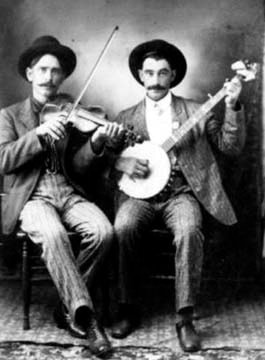
[Yeah, post title in Latin ... that'll reel the readers in! LOL]
Some teachers are reticent to listen to the sharpest criticisms of their institutions - but people who aren't teachers know these criticism. Some are even common knowledge. If we're honest with ourselves, we know these criticisms as well.
- Schools facilitate bullying
- Schools turn children into haters of knowledge
- School produce dropouts
- Schools narrow the human imagination into narrow capitalist terms
Teachers leave them kids alone! ~ Pink Floyd
Are these unfair criticisms? Sure. In many ways they are. But there is also truth to teach of them. Whether we like it or not, the very acts of schooling - such as putting 30 middle-schoolers in a room with one adult - encourage bullying. Many humans have had bad experiences in schools. For a reason. For hundreds of thousands of years, homo sapiens has thrived in multi-age spaces. Single-age spaces are unique to schools, and humans never experience them again after schooling. Every child of 5 walks into school loving learning. Intrinsically. A good percentage hate learning when they leave at 18 (or 22, or 30). Some percentage of those 5-year-olds will become dropouts. Do you look into their eyes on the first day of school knowing that?
It is the nature of grading. There is an "F" in the books and somebody will earn it. If you don't assign an "F" other teachers will feel obligated to (picking up the slack). And those who do learn, somehow despite of schooling, narrow their imaginations. Preschool children, at least those with little institutional experience, have vast imaginations. But every 18-year-old I teach at the university has one thing on their mind. Employment. Those with better grades seem to have narrower imaginations! School takes the limitless capacity for intrinsic learning and directs it at one end. Capitalism. It does this by enforcing competition, which returns us to a unified vision of schooling as competition (bullying, grades, dropouts, narrowed imagination, capitalism). Competition is wasteful. It wastes humans (making dropouts and depressed "successes") and creates garbage.
How can teachers improve if we're unwilling to listen to the worst criticisms with sympathetic ears-wide-open? Many teachers close their ears. They shout: School is good! Teachers are good. We need more school. At younger ages. This will fix society's ailments. More, more, more!
I humbly must disagree. more isn't better. Humans need non-school time. I consider my professional responsibility differently than many. Right now I teach popular music, Western music, and jazz, as well as substitute teach; in university and elementary settings; and these are the institutions I criticize the most. Popular music is institutionalized by unsustainable recording executives. It is a narrow genre, taking diverse local musical cultures and promoting the most profitable few. It is full of waste. It may produce even more waste as it is incorporated into schools! When I was young, rock and punk music were ways to escape schools. To escape bullying and grades. It was a way to recapture that intrinsic love for learning. How can it be an escape from school if its institutionalized? If those students who thrive at school are the only ones who also have access to learning popular music? If they out-compete? If they bully? Western music is already dead. It was killed by schools in the early 20th Century. It is a home for seating, grading, competitions, and bullying. Jazz was killed by being institutionalized in universities in the later 20th Century. Learning moved from homes and churches to, now. Julliard. Universities are uniquely bad at fostering learning, because students go into vast amounts of debt to have a chance at middle class jobs. This is unethical at its core.
Corruptio optimi quae est pessima. The corruption of the best is the worst. We have had an impulse to teach and learn for as long as we've been humans. Our institutions are wasteful and competitive. They end up facilitating a misdirection of students moral energy. A misdirection of society's hopes. Learning devolves to learning to get a job. Creativity devolves to creating what teachers (or worse, faceless bureaucrats writing curricula for corporations and politicians) say you'll create. And at each step, a sustainable practice of teaching and learning becomes less sustainable; more wasteful and destructive of our fragile planet. The way forward must be to resist our institutions, even as we work within them. What might music teaching and learning look like if we listen deeply to our fiercest critics? If we take them seriously? Those we have failed? The non-musicians we made? (see image). We know every place music educators haven't touched includes thriving musical culture. And everywhere we have has non-musicians. I think we organize within the belly of the beast, so to say. Deschooling has to start with deschooling our spaces as much as we can. Resistance for conservation's sake.
DJS
 RSS Feed
RSS Feed
